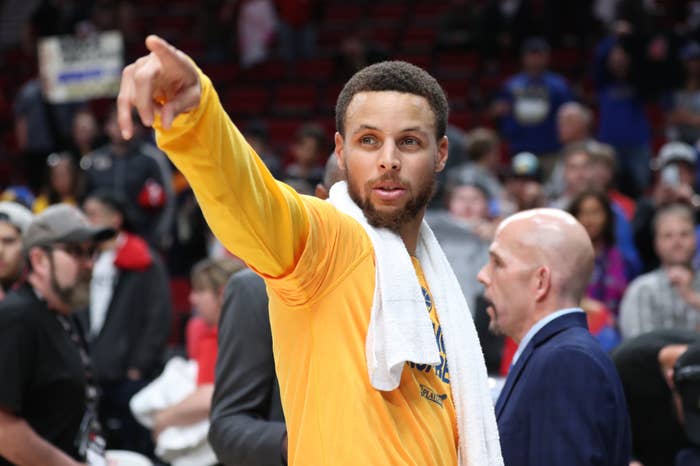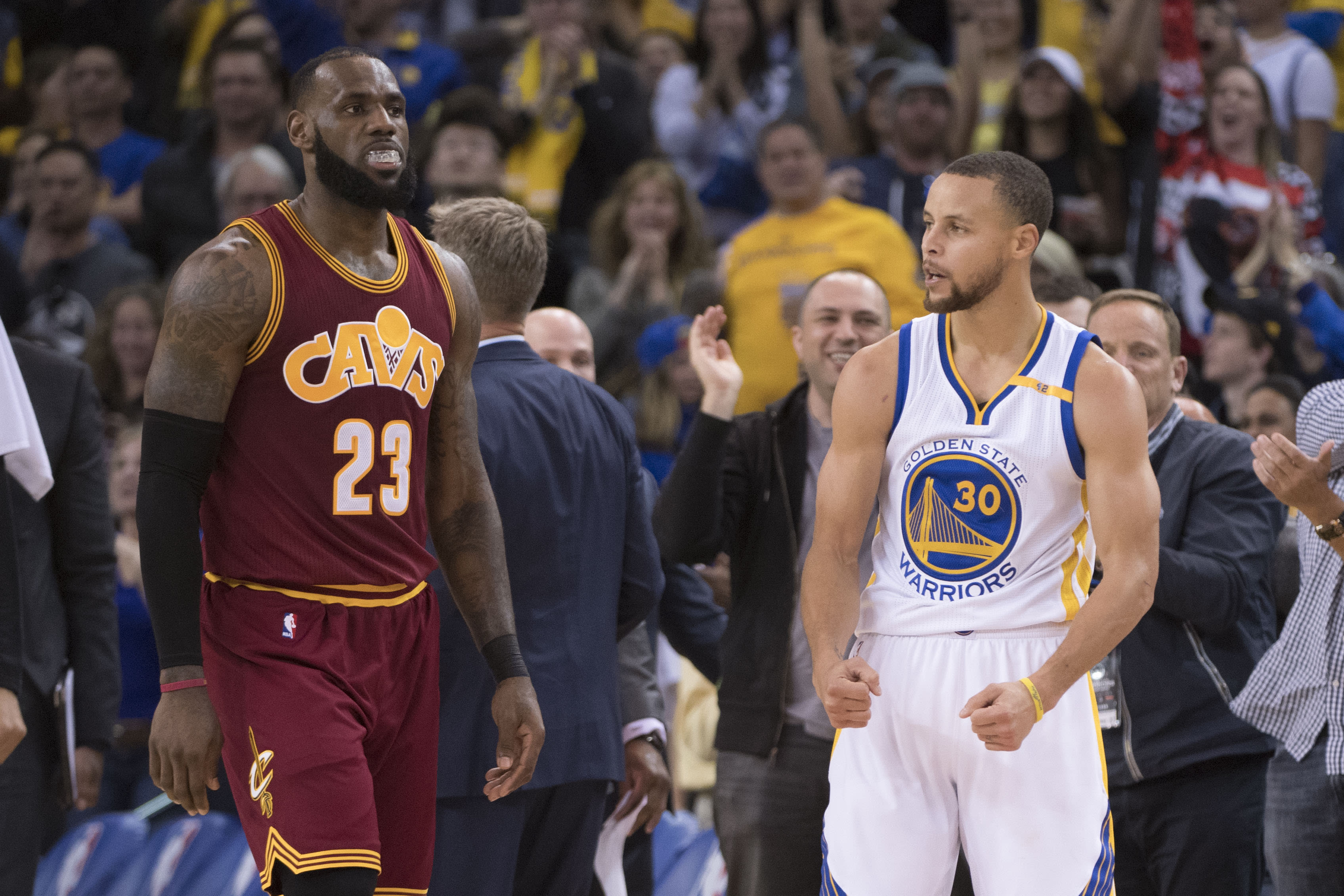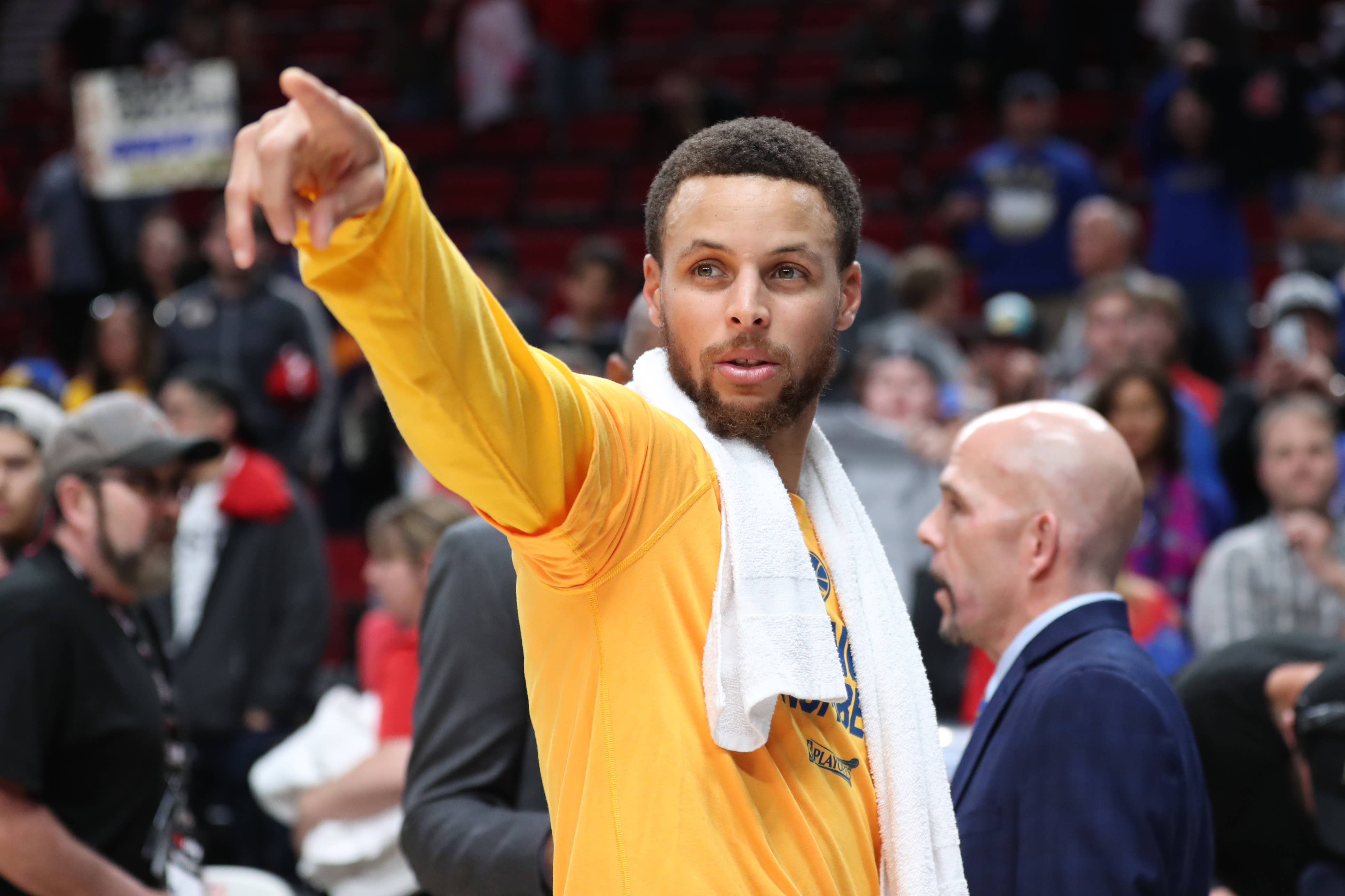
It’s doubtful many people can tell you what service Kaiser Permanente provides, but they might have some thoughts on the company’s latest commercial starring Stephen Curry. The visuals are certainly familiar. The aquatic chamber where Curry finds his calm looks awfully similar to the "sunken place" from the film Get Out, which was a metaphor for suppressed or diluted blackness. The commercial’s tagline—"Train the Mind. The Body Will Follow"—only makes the similarities all the more ominous under the circumstances.
Two weeks ago, while promoting his new book on Curry, Marcus Thompson discussed the presumed contempt LeBron James has towards Curry. According to Thompson, LeBron—among other players—dislikes the speed and height to which Curry has been exalted, while Curry remains confused and dismayed as to why and how the outside world has successfully pit the two against each other. Curry is just being himself. The problem is that this aligns with what much of ticket-buying America wants the rest of the league to be.
Through not much—if any—fault of his own, Stephen Curry has found himself as both a beneficiary and victim. He will remain there for some time. Separate, yet still trapped in a sunken place of our making.
That problem is as old as the modern NBA itself. Just 30 years ago, the league was practically untouchable on Madison Avenue, having been deemed “too black.” But Michael Jordan solved all of that, establishing a model pitchman that still looms over the sport; the handsome, inoffensive, apolitical winner who defies physics and stereotypes.
Curry embodies all of these characteristics and furthers them with his devout faith, slight frame and light skin. He’s not too black, he’s not too tall, and for the second year in a row he’s the league’s top-selling jersey. With his adoring wife/business partner and adorable children in tow, the man has managed to simultaneously make himself completely unbelievable and wholly relatable. Few are afforded such a space in the public consciousness.
Last week, GQ released a cover story entitled "The Revenge of Stephen Curry, the Happy Warrior," in which once again Curry and James are pit against each other. The profile doesn’t just mention LeBron in passing. He’s consistently depicted as everything that Curry, refreshingly, is not: first, by leaving the impression that LeBron is an ungraceful athlete; then, by directly contrasting him with that more inkless, Christ-like example of unheralded struggle and unselfish meekness. Finally, the article proceeds to completely ignore James’ exhaustive charitable efforts and proclaim Curry as the new symbol of black athletic consciousness that isn’t noticeably black at all.
None
Granted, GQ has no reason to choose between LeBron and Curry. Both are valuable relationships for the magazine to maintain. But it read as though only one of them worked for what they have and that we should only want one of them to have what they do. Just as with Phil Jackson’s comments about his “posse,” this profile is the latest example of how many conversations about LeBron limit or diminish him. To his size. To his past. To his upbringing. To a cliché: Goliath. Whereas every exalting utterance of Curry’s name portrays him as David.

This isn’t always due to any intentional racial animus, but to the nature of business and the country itself. Players are placed in neatly packaged narratives sold both by the league and media. Inadvertently or not, things are often projected onto them that are indicative of attitudes towards black people en masse. Consciously or not, they are categorized and separated. Angry and happy. Brutish and refined. Threatening and safe. Plainly put: They’re stereotyped.
The players see it, too. Though adored by millions, they know the love is conditional. They must bend some of their thoughts and very identities in order to maintain their relationship with a largely white audience. It can be a frustrating existence, as exhibited by Curry’s own teammate Andre Igoudala, who in a moment of brutal candor last month responded to a question with, “What would dumb n****** say? ‘Just play harder. Figure it out. Change gon’ come.’ Ain't that what we should say?”
This just happened to be in Minnesota, where only three years ago, congressman Pat Garofalo shared his own cogent analysis about the NBA: “Let’s be honest, 70% of teams in the NBA could fold tomorrow + nobody would notice a difference w/ possible exception of an increase in street crime”, he tweeted.
The two comments are inextricable. The NBA is still “too black” for many Americans. But the league still remains beholden to many of those Americans' wallets. Which leads to suppressions. Players are alternately admired and admonished; wanted primarily for their bodies. But in business, that’s called compromise. The compromise in this case being "Why can’t you be more like him?"
Through not much—if any—fault of his own, Stephen Curry has found himself as both a beneficiary and victim of this complex. He will remain there for some time. Separate, yet still trapped in a sunken place of our making.

